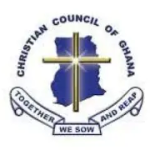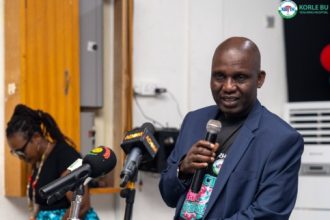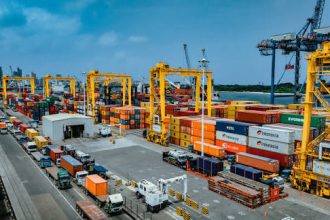Seventy-seven officers at the Ankaful Prisons in the Central Region have been rendered homeless after heavy rains on Friday, June 17.
The official residence of these officers got submerged in rainwater following the floods that occurred in the Ankaful enclave and its adjoining communities.
The bungalows got submerged after the water from the Kakum River overflew its banks destroying personal belongings, uniforms, electronics, and other household items.
The rains started last Friday night and continued till Saturday dawn.
More than 100 houses in the Komenda Edina Eguafo Abirem municipality were also submerged.
At Ankaful, a prison officer, Senior Chief Officer Lutterodt, drowned when flood waters swept through the Camp Prison.
Assistant Director of Prisons (ADP) and officer in charge of Ankaful Prisons, Patrick Asiedu, confirmed the incident and assured his colleagues of relief.
“About 77 so far officers have been affected. The various officers in charge had to quickly mobilize and give them shelter.”
According to him, an assessment of the situation had been made and a meeting was scheduled to discuss immediate support for affected officers.
“Unfortunately, three of the rivers we have linked up around Jukwa area and it causes the flood because now the water has to find its own course and also the natural way by which the water could have flown was through downstream into the sea,” he lamented.
NADMO responds
The Director-General of the National Disaster Management Organisation (NADMO), Eric Nana Agyemang-Prempeh; the Central Regional Minister, Justina Marigold Assan; and other officials also toured affected communities to ascertain the extent of damage and pledged to take prompt actions to alleviate the plight of the affected people.
As an immediate intervention, NADMO presented relief items to the Prisons Service at Ankaful.
Nana Agyemang-Prempeh said he was happy about the Roads Ministry’s response to the disaster to ensure that affected roads were repaired without delay.
Destruction by floods
Many lives have been lost and properties destroyed due to the annual floods.
In 2011, floods in the country resulted in the death of more than 30 people nationwide, with 15 victims in Accra.
In 2015, 159 people were confirmed dead from a twin disaster of floods and fire explosion.
It was one of the deadliest catastrophes to befall the country, leading to days of mourning as families lost their loved ones.
A fire explosion occurred after several hours of rain and flooding around the Kwame Nkrumah Interchange enclave.
In June 2020, a man died trying to warn neighbours about flooding at Odawna in Accra.
A resident explained that the deceased was trying to salvage some items during the flooding when he was electrocuted.
At Achimota, a bus was trapped in a storm drain. It was not carrying passengers. At least 20 persons were rescued from that incident after a downpour that lasted hours.
Flooding in Accra has also killed people and displaced people in the city in 1995, 1997, 2001 and 2010.
Interventions by authorities
For many Ghanaians, the annual ritual of the capital city flooding has become a cause of anger.
Efforts by the city authorities to check the situation continue to be undermined by recalcitrant residents and the weak enforcement of bye-laws.
The government has attempted to address this problem by dredging rivers and gutters before rainy seasons, but this appears to be ineffective.
In May 2019, President Nana Akufo-Addo inspected two major projects handed out in 2016 to Dredge Masters Limited for the desilting and dredging of the Odaw channel and restoration of the Korle Lagoon to avert the perennial flooding in Accra.
The scope of work also included the redesign and construction of the KLERP interceptor and breakwater at the outfall.
The channel under the scope starts from the Odaw Onyasia confluence at Carprice in Accra, through Avenor, Kwame Nkrumah Interchange, and the Agbogbloshie-South Kaneshie drain (the Upper and Lower Lagoon).
The two projects the president inspected were the Accra Sanitary Sewer and Storm Water Drainage Alleviation Project at Circle and the Drainage Construction at Kaneshie 1st Light Intersection.
Other causes of floods are the improper planning of settlement in Accra, choked gutters that block the drainage system and a few other human factors.
















